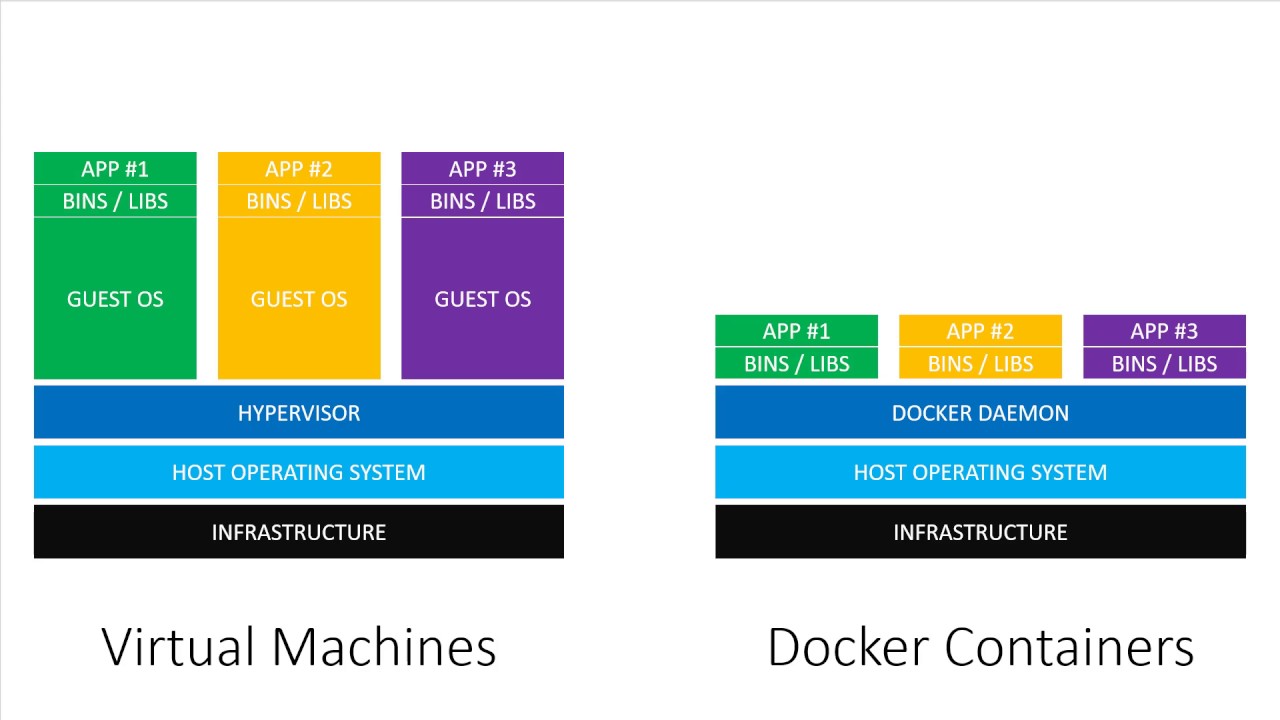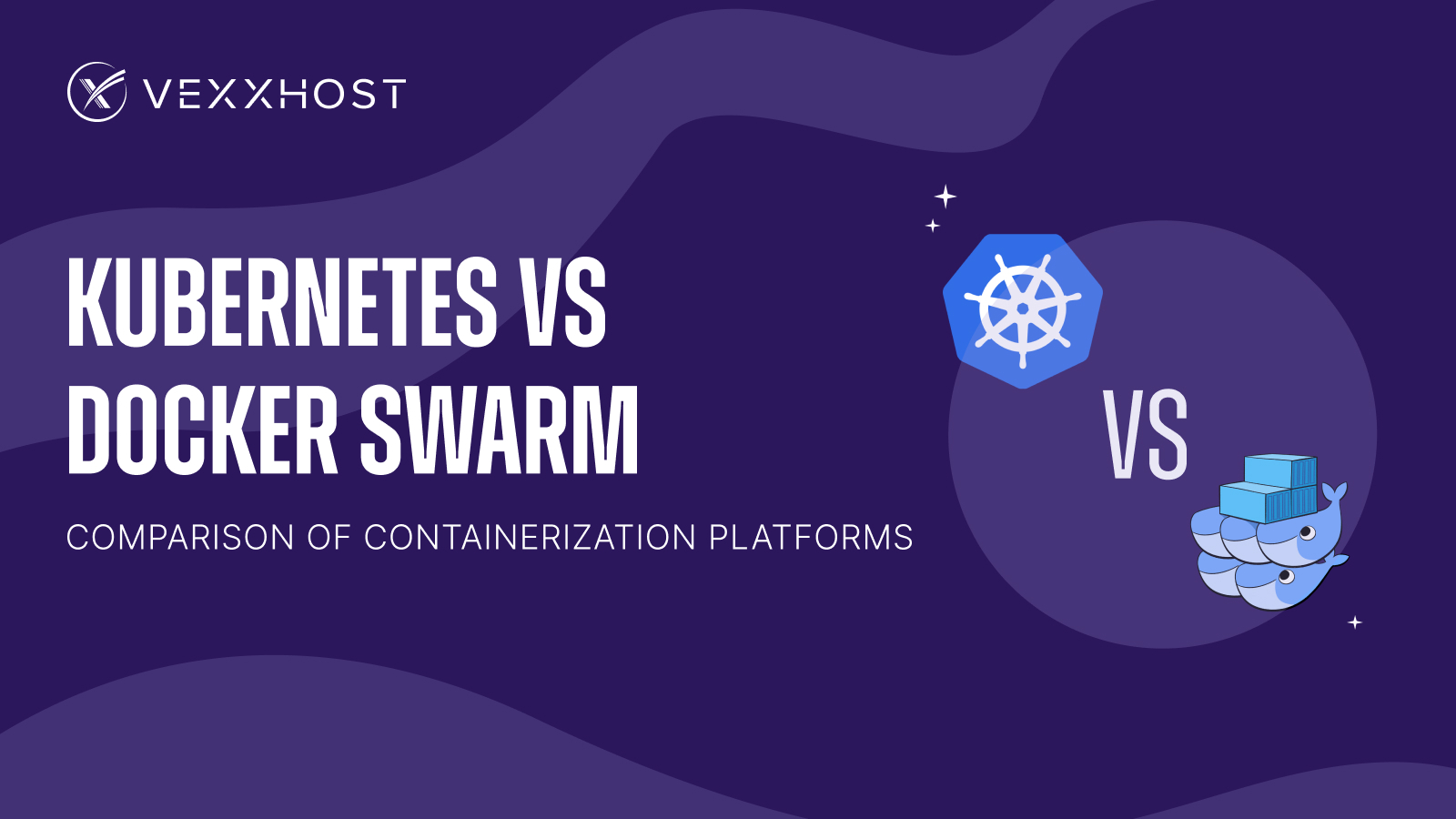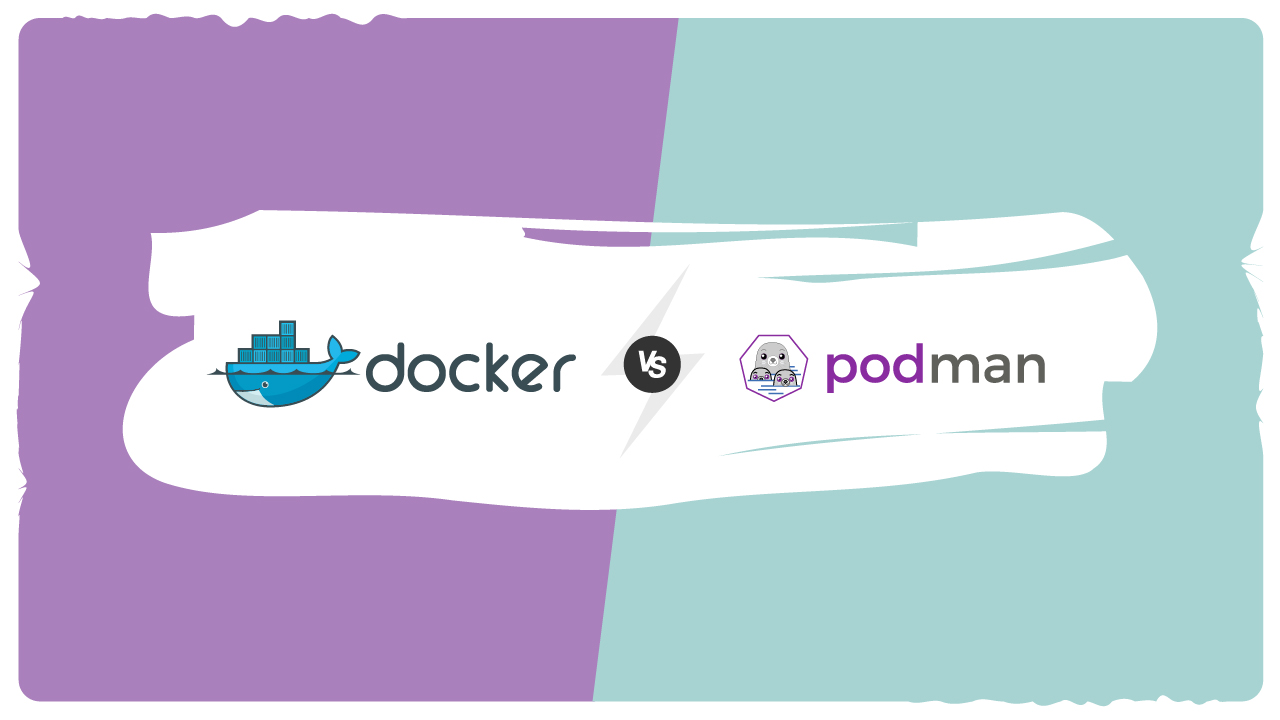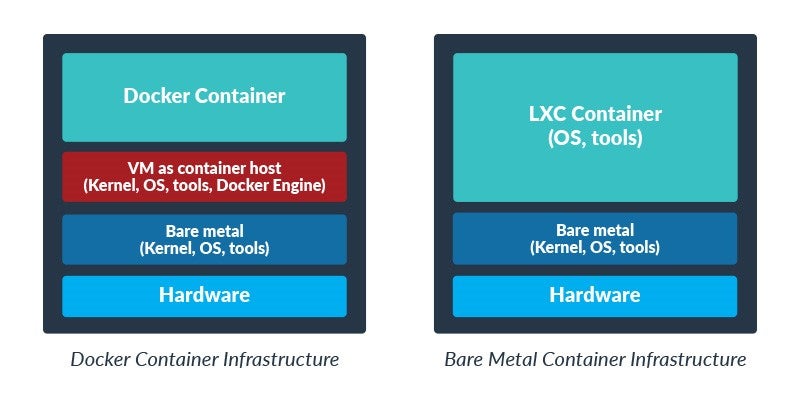Understanding Containerization and Docker
Containerization has emerged as a popular approach for deploying and managing applications, offering numerous benefits such as resource efficiency, portability, and consistent execution environments. Docker is a widely-used containerization platform that has significantly contributed to the technology’s popularity.
The concept of “containers docker vs” is essential for developers, system administrators, and IT professionals to understand, as choosing the right containerization solution can significantly impact project success. This article provides a comprehensive overview of Docker and its alternatives, helping you make an informed decision based on your specific requirements.
Docker simplifies the process of creating, deploying, and managing applications using container technology. By packaging an application and its dependencies into a single container, Docker enables consistent execution across various environments, reducing compatibility issues and streamlining the development lifecycle.
Comparing Docker with alternative containerization solutions is crucial for understanding the strengths and weaknesses of each option. Various factors, such as project scale, resource constraints, and security considerations, can influence the choice of a containerization platform. By evaluating these aspects, you can select the most suitable solution for your needs and optimize your containerization strategy.
Exploring Docker Competitors
While Docker has established itself as a leading containerization platform, several alternatives offer unique features and purposes, making the “containers docker vs” comparison essential for selecting the best solution.
Kubernetes, an open-source container orchestration system, has gained popularity for managing and scaling containerized applications. It automates container deployment, scaling, and management, ensuring high availability and fault tolerance. However, it is essential to note that Kubernetes is not a direct Docker replacement, as it operates at a higher abstraction level, managing multiple containers across various hosts.
Podman, or Pod Manager, is another Docker alternative that focuses on container runtime. Developed by Red Hat, Podman is a daemonless container engine that allows users to manage containers, pods, and container images. It offers improved security, performance, and ease of use compared to Docker, making it an attractive option for users looking for a more lightweight and flexible solution.
LXC, or Linux Containers, is a Linux-based container solution that predates Docker. LXC leverages kernel features to create isolated environments, providing an alternative approach to containerization. While Docker and LXC share some similarities, their design philosophies, features, and performance differ, making them suitable for different use cases.
Comparing Docker with these alternatives is crucial for understanding the strengths and weaknesses of each platform. By evaluating their unique features, purposes, and ideal use cases, you can make an informed decision about the most suitable containerization solution for your needs.
Docker vs. Kubernetes: A Showdown
When considering “containers docker vs” alternatives, it is essential to compare Docker and Kubernetes, two popular containerization solutions. Although they are often mentioned together, they serve different purposes and have unique features.
Docker and Kubernetes share some similarities, as both are designed for container orchestration and management. However, Docker focuses on creating and managing individual containers, while Kubernetes manages and scales multiple containers across various hosts.
Kubernetes offers features such as automated rollouts, self-healing, service discovery, and load balancing, making it an ideal solution for large-scale, complex deployments. It is particularly useful in microservices architectures, where numerous containers require coordination and management.
On the other hand, Docker is more suitable for smaller-scale projects or when rapid container deployment and management are essential. Docker’s simplicity and ease of use make it an excellent choice for developers looking to quickly create and deploy containerized applications.
Addressing the misconception that Kubernetes is a Docker replacement, it is essential to understand that they complement each other in many ways. Docker can be used as the container runtime for Kubernetes, allowing users to leverage the benefits of both platforms.
In summary, the Docker vs. Kubernetes comparison highlights their similarities, differences, and ideal use cases. By understanding their unique features and purposes, you can make an informed decision about which platform best suits your containerization needs.
Docker vs. Podman: A Container Runtime Comparison
As part of the “containers docker vs” exploration, comparing Docker and Podman as container runtimes is essential. Both platforms have their strengths and weaknesses, and understanding their differences can help you choose the best solution for your needs.
Docker has long been the go-to container runtime for developers and system administrators. It offers a user-friendly interface, making it easy to create, deploy, and manage containers. However, Docker’s reliance on a daemon process can lead to potential security concerns and resource utilization issues.
Podman, on the other hand, is a daemonless container engine developed by Red Hat. It provides similar functionality to Docker but without the need for a daemon process. This design results in improved security, performance, and ease of use, as users can manage containers and pods without worrying about background processes.
When comparing Docker and Podman, consider the following factors:
- Performance: Podman’s daemonless design often results in better performance and lower resource usage compared to Docker.
- Security: Podman’s lack of a daemon process reduces the attack surface and improves overall security.
- Ease of use: Docker’s user-friendly interface and extensive documentation make it an attractive option for those new to containerization.
In summary, the Docker vs. Podman comparison highlights their differences as container runtimes. While Docker remains a popular choice, Podman’s daemonless design and improved security make it an appealing alternative for many users. Carefully evaluating your project requirements and constraints can help you determine which platform is the best fit for your containerization needs.
Docker vs. LXC: A Look at Linux Container Alternatives
In the “containers docker vs” exploration, it is essential to consider Docker’s Linux container counterpart, LXC (Linux Containers). Both platforms share some similarities but have distinct design philosophies, features, and performance characteristics.
Docker popularized containerization by simplifying the process and introducing a user-friendly interface. It builds upon Linux container technology, offering a layer of abstraction that makes containerization more accessible to a broader audience.
LXC, on the other hand, is a more traditional Linux container solution that predates Docker. It leverages kernel features such as namespaces and cgroups to create isolated environments directly. LXC provides a lower-level, more direct approach to containerization, making it suitable for users who prefer fine-grained control over their container environments.
When comparing Docker and LXC, consider the following factors:
- Design philosophy: Docker focuses on simplifying containerization, while LXC offers more direct control over container environments.
- Features: Docker provides a rich set of features, such as image management, networking, and storage plugins, while LXC relies on the underlying Linux kernel features.
- Performance: LXC’s direct use of kernel features can result in better performance and lower resource usage compared to Docker.
In summary, the Docker vs. LXC comparison highlights their differences as Linux container solutions. Docker’s simplicity and user-friendly interface make it an attractive option for many users, while LXC’s direct approach and fine-grained control may appeal to those with advanced containerization needs. Carefully evaluating your project requirements and constraints can help you determine which platform is the best fit for your containerization needs.
How to Choose the Right Containerization Solution
When exploring “containers docker vs” alternatives, selecting the most suitable containerization platform for your specific requirements is crucial. Here is a guide to help you make an informed decision, considering factors such as project scale, resource constraints, and security considerations.
- Define your project requirements: Clearly outline your project’s goals, scope, and constraints. This information will help you determine which containerization solution best fits your needs.
- Assess project scale: For small-scale projects or rapid application development, Docker might be the ideal choice due to its simplicity and user-friendly interface. However, for large-scale, complex deployments, consider Kubernetes or other orchestration tools that offer advanced features like automated rollouts, self-healing, and load balancing.
- Consider resource constraints: Evaluate your available resources, such as computing power, memory, and storage. Lightweight solutions like Podman or LXC might be more suitable for systems with limited resources.
- Evaluate security considerations: Assess the security requirements of your project. Platforms like Podman and LXC, which do not rely on a daemon process, might offer better security due to their reduced attack surface.
- Test and evaluate different solutions: Before committing to a specific containerization solution, test and evaluate various options. This hands-on approach will help you understand the nuances of each platform and make an informed decision.
In conclusion, understanding your project’s unique requirements and constraints is essential when choosing the right containerization solution. By carefully considering factors such as project scale, resource constraints, and security considerations, you can select the most suitable platform for your needs and make the most of containerization technology.
Staying Updated with Docker and Its Alternatives
Staying current with the latest developments in containerization technology is crucial for making informed decisions and leveraging the full potential of these tools. Here are some resources and strategies for tracking updates and improvements in Docker and its alternatives.
- Follow official blogs and announcements: Regularly check the official blogs and announcement channels for Docker, Kubernetes, Podman, and LXC. These resources provide insights into new features, bug fixes, and best practices.
- Participate in community forums: Engage with the vibrant containerization community by joining forums, mailing lists, and social media groups. Participating in discussions can help you stay informed about emerging trends and developments.
- Attend conferences and meetups: Participate in containerization-focused conferences and meetups to learn from industry experts, share experiences, and discover new tools and techniques.
- Monitor relevant tags on GitHub: Keep an eye on the GitHub repositories for Docker, Kubernetes, Podman, and LXC. By monitoring these repositories, you can stay updated on bug fixes, new features, and community contributions.
- Subscribe to newsletters and blogs: Follow industry experts, thought leaders, and technology websites that cover containerization news and trends. Subscribing to their newsletters and blogs can help you stay informed about the latest developments.
In conclusion, staying updated with the latest developments in containerization technology is essential for making the most of these powerful tools. By leveraging resources such as official blogs, community forums, conferences, GitHub repositories, and newsletters, you can ensure that you are well-informed and equipped to adapt to the ever-evolving landscape of containerization technology.
Embracing the Future of Containerization
In the ever-evolving world of software development, understanding the strengths and weaknesses of various containerization solutions is crucial for staying ahead. By exploring “containers docker vs” alternatives, you have taken an important step towards making informed decisions and optimizing your containerization strategy.
Throughout this article, we have discussed the concept of containerization, introduced Docker as a popular containerization platform, and compared it with alternatives such as Kubernetes, Podman, and LXC. We have highlighted the similarities, differences, and ideal use cases for each solution, addressing the misconception that Kubernetes is a Docker replacement.
When selecting a containerization platform, it is essential to consider factors such as project scale, resource constraints, and security considerations. By following our guide on how to choose the right containerization solution, you can ensure that your chosen platform aligns with your specific requirements and delivers the desired results.
Staying updated with the latest developments in containerization technology is equally important. By leveraging resources such as official blogs, community forums, conferences, GitHub repositories, and newsletters, you can keep your finger on the pulse of this dynamic field.
In conclusion, embracing the future of containerization requires a deep understanding of the available options and a commitment to continuous learning. By exploring and experimenting with different containerization solutions, you can find the best fit for your needs and harness the full potential of this powerful technology. Remember, there is no one-size-fits-all answer to the “containers docker vs” question – the right choice depends on your unique circumstances and objectives. So, stay informed, be open to new ideas, and never stop seeking better ways to streamline your software development and deployment processes.







